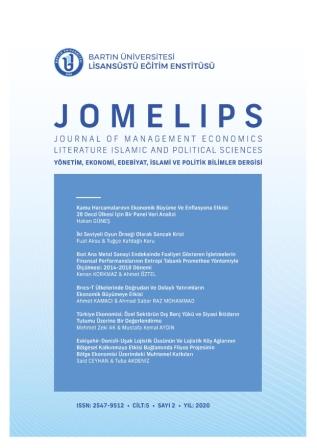TÜRKİYE EKONOMİSİ: ÖZEL SEKTÖRÜN DIŞ BORÇ YÜKÜ VE SİYASİ İKTİDARIN TUTUMU ÜZERİNE BİR DEĞERLENDİRME
TURKISH ECONOMY: AN EVALUATION OF THE FOREIGN DEBT BURDEN OF THE PRIVATE SECTOR AND THE ATTITUDE OF THE GOVERNMENT
Author(s): Mehmet Zeki Ak, Mustafa Kemal AydinSubject(s): National Economy, Political economy, Financial Markets, Public Finances
Published by: Bartın Üniversitesi, Sosyal Bilimler Enstitüsü
Keywords: Private sector debt; Financial stability; Turkish Economy; External debt burden;
Summary/Abstract: There has been increasing trends in the foreign debt of the private sector in Turkey since 2001 Financial Crisis. It can be said that the government encouraged this trend due to the decreasing foreign debt of the public, regardless of the fact that the capacity for the economy to produce external currency was so low. Moreover external funds brought by the private sector had a positive effect on consumption and growth. However the negative conjuncture of 2008 Global Financial Crisis increased the cost of foreign debt and brought forward currency substitution as well. As a conclusion the fragility resulted from foreign debt had a power to threaten the economic structure. The fact that the government had resisted to increase the interest rate for a long time and had a strict manner towards adversative approaches increased this threat. The government found out the significance of the case totally after the speculative attack in 2018 August and tried to take precautions against this structural problem. However the pandemia affecting the entire world restricts the radius of action of the government. There has been a vicious circle which can be explained by the phrase ‘the recession ongoing despite increasing burden of foreign debt’.
Journal: JOMELIPS-Journal of Management Economics Literature Islamic and Political Sciences
- Issue Year: 5/2020
- Issue No: 2
- Page Range: 105-126
- Page Count: 22
- Language: Turkish

